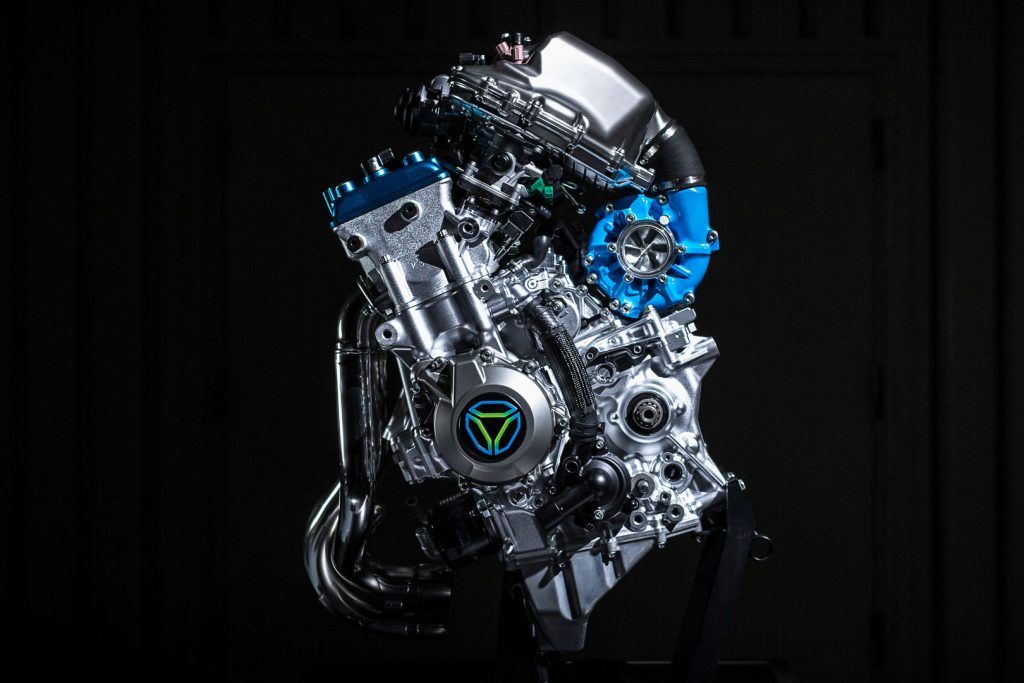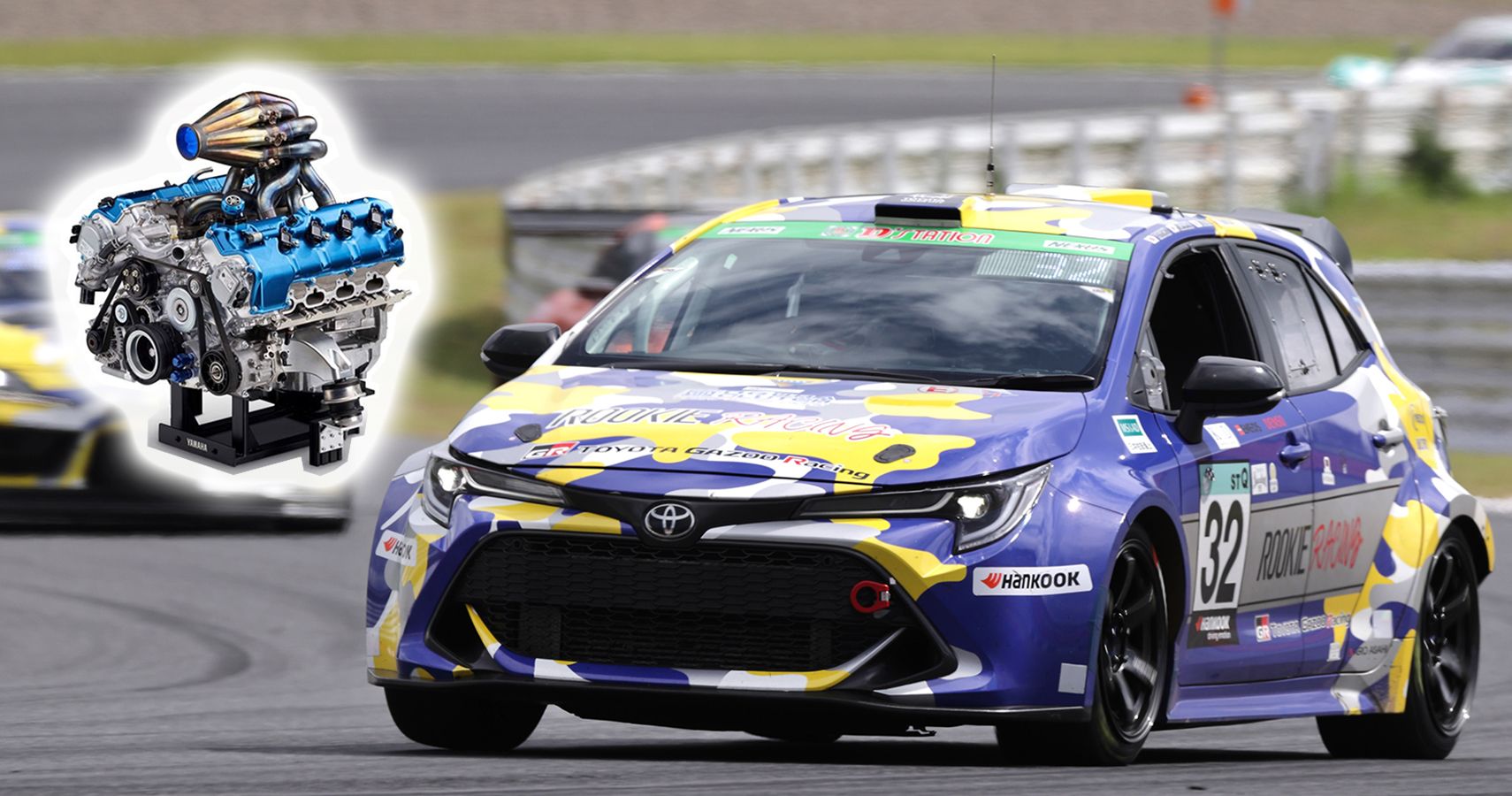Almost every carmaker right now is looking in the same direction – the direction of hybrids and EVs. But rarely do we hear about a mainstream motorcycle manufacturer thinking of finding ways to reduce its carbon footprint. Interestingly, Kawasaki has become the front runner in this quest for motorcycles to go carbon-neutral in the near future. To ensure that this new hydrogen-fueled engine works and has zero CO2 emissions, Kawasaki has sought help and expertise of Toyota.
This is one of those rare occasions when two giants from two different domains come together in order to achieve something extraordinary. If things go as expected, this will mark the beginning of a new era for the automobile world as a whole. Not to say this project has its fair share of limitations that need to be either addressed or bypassed. But considering the technological expertise both these manufacturers carry, we should be able to see hydrogen-fueled motorcycles in the next two years.
Kawasaki Hydrogen Combustion Engine Will Have Minimum Emissions
As opposed to the myth, this hydrogen-fueled engine ‘will’ not compromise on the power. This technology will use hydrogen gas being directly injected into the conventional engine like the one Kawasaki already uses in its H2 motorcycle. These motorcycles will be unlike the usual hydrogen-powered vehicles where hydrogen is fed to the fuel cells where the chemical energy is transformed into electrical energy. Hydrogen fuel cell vehicles are still EVs where the electricity is generated using hydrogen. This engine will work just like an internal combustion engine (ICE) except the fact that instead of gasoline, there will be hydrogen in a compressed form.
Yes, the burning of hydrogen with the help of oxygen might not lead to zero emissions, but it will still be negligible as compared to the contemporary options. Converting the H2’s supercharged engine to run on hydrogen will be an interesting development to watch. The fact that there is still fuel being fed to the engine, this engine will feel (and sound) like a usual engine minus the adversity to the environment. When hydrogen burns with the help of oxygen, the only residue is in the form of some water. This sounds too ideal for now, but we would love to see a motorcycle with minimal damage to the surroundings without losing the basic characteristics of a motorcycle.
How Practical This Hydrogen-Fueled Engine Will Be?
This is the bitter side of the story. Making an engine is one thing, and to make it viable is another. It is the latter part we are more concerned about. Extracting hydrogen is a very costly process, and the infrastructure to do it is extremely limited worldwide. Then there is the fear people have of driving a car with a tank full of a volatile substance like hydrogen. But, more importantly, making hydrogen available at a mass scale globally is a Herculean task. From where we stand as of now, using a hydrogen-powered vehicle right now is going to be a much more expensive proposition than using a vehicle running on fossil fuels or electricity.
But people had the same reservations when EVs started to emerge on roads. The infrastructure was limited and charging stations were not as commonly available as they are today. Governments across the globe need to address this opportunity, and support it the way they supported the hybrid and electric vehicles. This technology can revolutionize the way the world moves. If not immediately, then a few years from now. And everything that can be done to make it viable should be done. This technology provides the best of both the worlds – the feel of a conventional engine without destroying the world around us.
Why The Toyota-Kawasaki Partnership Is A Match Made In Heaven
Both Kawasaki and Toyota have expertise in fields very crucial to this project. For this engine to work the way it is expected to, direct injection is a must. Port injection will end up resulting in hydrogen being pushed back out of the intake port which, goes without saying, will result in a mismatch in the firing order. Another thing that Kawasaki has under its belt is the supercharger that it uses on its H2 motorcycle. This combination of compressed air and hydrogen being fed straight to the ignition chamber is the most ideal way for this engine to operate. On paper, this engine should make significantly more power than its gasoline counterpart.
Toyota, on the other hand, has already been using hydrogen-fueled engines for a while now. For time being, the two hydrogen-fueled Toyotas – the Corolla and the Yaris – are used only for racing purposes. But the fact that they exist says a lot about the edge Toyota has over other manufacturers. Yes, there are a few hurdles to address before these engines go into production, but even the tiniest step in this direction is good news. One of the many issues is to find a way to use liquefied hydrogen instead of the gaseous form as it takes 1/800th of the volume when in liquid form. The biggest challenge however is to make hydrogen available for masses.



-1.jpg)
